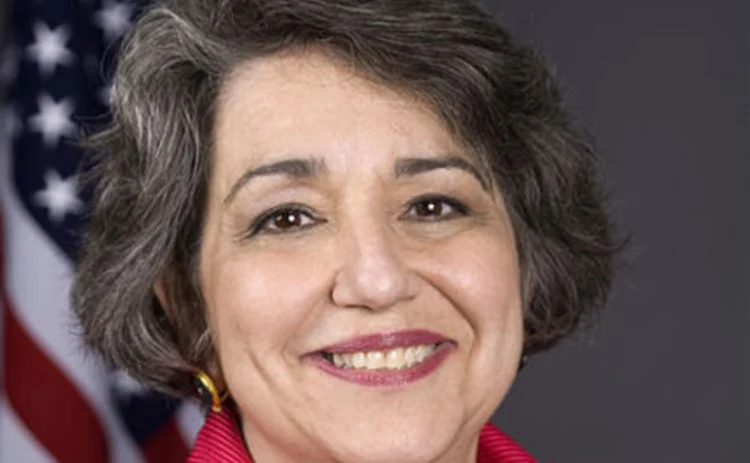Elisse Walter Named SEC Chair, Likely to Seek Greater Coordination Abroad

Elisse Walter will become chair of the Securities and Exchange Commission (SEC), following the departure of Mary Schapiro December 14. Even if it is merely a temporary stay, Walter's installation in the role, which in its rapidity has come as a surprise to some, and does not require US Senate approval because she is already on the Commission, will see more details of her rule-making philosophy emerge in coming days.
Walter's recent posting at the Harvard Law School Forum for Corporate Governance and Financial Regulation gives some indication of her view of financial technology, and global regulators' required affinity for it.
The posting, International Coordination Among Regulators, penned last month on the same day the SEC's technology roundtable, sets out to provide Walter's thoughts on time recently spent as the Commission's representative to the Financial Stability Board (FSB) and the International Organization of Securities Commissions (Iosco).
Setting out to draw a subtle distinction between cross-border “cooperation” and “coordination,” Walter suggests that the answers to regulators' most difficult questions are likely to be found in "bilateral and smaller multilateral dialogues among regulators in key jurisdictions," citing practical limitations of the larger forums mentioned above.
She notes that technology-focused initiatives, such as the unified legal entity identifier (LEI) initiative, are already proving how a collaborative model, driven not only by the Group of Twenty (G20) nations, but also by active engagement with private firms, can be fruitful.
"[The eventual LEI implementation] should lower the cost of data aggregation and reporting. It should also allows private firms to improve their own risk management practices, and to provide better data to financial regulators as we monitor the markets and the financial system," she writes.
That model is expected to grow further, according to Walter. "I expect that the role of technology in the market will lead to a greater level of coordination with non-US regulators. As markets rely more and more on automated systems and become increasingly interconnected, we will need to work together to maintain a reliable and robust market infrastructure, one that is capable of detecting and mitigating risks that technology and automation may bring," she says, seeing similar value in stronger international initiative around systems risk.
As a new cohort of post-crisis officials take the reins, including Mark Carney, also chosen today as the first Canadian to lead the Bank of England—and, soon enough, oversee many of the UK Financial Services Authority’s (FSA’s) responsibilities as well—it will prove interesting to observe how, if at all, technology and global regulatory coordination effectively combine.
Only users who have a paid subscription or are part of a corporate subscription are able to print or copy content.
To access these options, along with all other subscription benefits, please contact info@waterstechnology.com or view our subscription options here: https://subscriptions.waterstechnology.com/subscribe
You are currently unable to print this content. Please contact info@waterstechnology.com to find out more.
You are currently unable to copy this content. Please contact info@waterstechnology.com to find out more.
Copyright Infopro Digital Limited. All rights reserved.
As outlined in our terms and conditions, https://www.infopro-digital.com/terms-and-conditions/subscriptions/ (point 2.4), printing is limited to a single copy.
If you would like to purchase additional rights please email info@waterstechnology.com
Copyright Infopro Digital Limited. All rights reserved.
You may share this content using our article tools. As outlined in our terms and conditions, https://www.infopro-digital.com/terms-and-conditions/subscriptions/ (clause 2.4), an Authorised User may only make one copy of the materials for their own personal use. You must also comply with the restrictions in clause 2.5.
If you would like to purchase additional rights please email info@waterstechnology.com
More on Emerging Technologies
Data standardization is the ‘trust accelerator’ for broader AI adoption
In this guest column, data product managers at Fitch Solutions explain AI’s impact on credit and investment risk management.
BNY inks AI deal with Google, Broadridge moves proxy voting to AWS, Expero delivers ICE market data, and more
The Waters Cooler: TSX Venture Exchange data hits the blockchain, SmartTrade acquires Kace, and garage doors link to cloud costs in this week’s news roundup.
Everyone wants to tokenize the assets. What about the data?
The IMD Wrap: With exchanges moving market data on-chain, Wei-Shen believes there’s a need to standardize licensing agreements.
Google, CME say they’ve proved cloud can support HFT—now what?
After demonstrating in September that ultra-low-latency trading can be facilitated in the cloud, the exchange and tech giant are hoping to see barriers to entry come down.
Waters Wavelength Ep. 342: LexisNexis Risk Solutions’ Sophie Lagouanelle
This week, Sophie Lagouanelle, chief product officer for financial crime compliance at LNRS, joins the podcast to discuss trends in the space moving into 2026.
Citadel Securities, BlackRock, Nasdaq mull tokenized equities’ impact on regulations
An SEC panel of broker-dealers, market-makers and crypto specialists debated the ramifications of a future with tokenized equities.
BlackRock and AccessFintech partner, LSEG collabs with OpenAI, Apex launches Pisces service, and more
The Waters Cooler: CJC launches MDC service, Centreon secures Sixth Street investment, UK bond CT update, and more in this week’s news roundup.
Tokenized assets draw interest, but regulation lags behind
Regulators around the globe are showing increased interest in tokenization, but concretely identifying and implementing guardrails and ground rules for tokenized products has remained slow.







